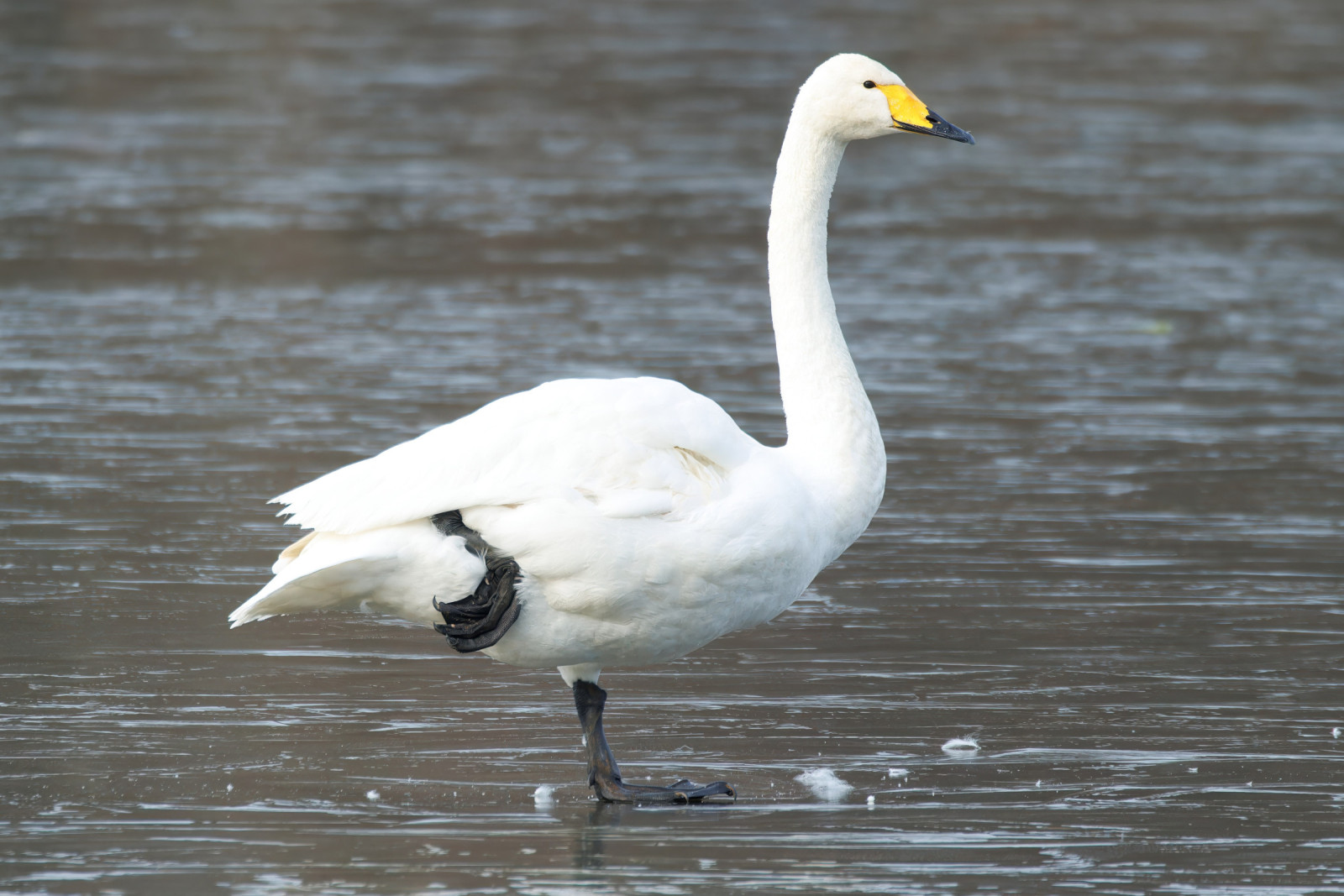Description
The Rotterdamse Hoek is a fairly large and diverse area consisting of a small forest, several larger ponds with reedbeds and a large wetland area, which attracts many species of waterbird during the winter and breeding season. The small forest in the western part of the area surrounds a pond which originates from the construction (draining) of the Flevopolders. The strong pressure from the water of the IJsselmeer caused water seeping through the dyke, creating the pond. The small forest is a good spot for many species of songbird, but also kanahaukka, sarvipöllö and kuningaskalastaja.
Just east of the forest, four larger ponds are present which are in winter a great spot for many species of ducks. Large flocks of tukkasotka, punasotka and smaller numbers of tavi are present. Scarcer species are often found within these large flocks, like isokoskelo, uivelo and lapasotka. The surrounding reedbeds are great for pajusirkku, viiksitimali and rytikerttunen. Often, Luhtakana can be heard and sometimes kaulushaikara is present. In winter, flocks of laulujoutsen and pikkujoutsen can be present.
The large wetland area on the northern side of the area are a great spot for migrating waders. Many species of wader are documented here. Common species, like kapustarinta, mustapyrstökuiri, tylli, suokukko and pikkutylli can be seen. Scarcer species, like tundrakurmitsa, pikkukuovi and lapinsirri have been seen here too. Large numbers of gull can be present and sometimes species like aroharmaalokki can be seen within these flocks.
The area just outside the dyke is a great spot for large flocks of foraging telkkä and silkkiuikku. Smaller numbers of isokoskelo can be seen here too. aroharmaalokki often passes by.
_________________________
Nederlands: De Rotterdamse Hoek is een vrij groot en divers gebied bestaande uit een klein bos, enkele grotere plassen met rietvelden en een groot waterrijk gebied, dat in de winter en het broedseizoen veel soorten watervogels aantrekt. Het kleine bos in het westelijke deel van het gebied omringt een vijver die is ontstaan uit de aanleg (drainage) van de Flevopolders. Door de sterke druk van het water van het IJsselmeer sijpelde water door de dijk en ontstond de vijver. Het kleine bos is een goede plek voor veel soorten zangvogels, maar ook voor kanahaukka, sarvipöllö en kuningaskalastaja.
Net ten oosten van het bos zijn vier grotere vijvers aanwezig die in de winter een geweldige plek zijn voor veel soorten eenden. Er zijn grote koppels tukkasotka, punasotka en kleinere aantallen tavi aanwezig. Binnen deze grote koppels komen vaak schaarsere soorten voor, zoals isokoskelo, uivelo en lapasotka. De omliggende rietvelden zijn goed voor pajusirkku, viiksitimali en rytikerttunen. Vaak is Luhtakana te horen en soms iseen kaulushaikara aanwezig. In de winter kunnen er koppels laulujoutsen en pikkujoutsen aanwezig zijn.
Het grote waterrijke gebied aan de noordkant van het gebied is een geweldige plek voor migrerende steltlopers. Veel soorten steltlopers zijn hier gedocumenteerd. Veel voorkomende soorten, zoals kapustarinta, mustapyrstökuiri, tylli, suokukko en pikkutylli zijn te zien. Ook schaarsere soorten, zoals tundrakurmitsa, pikkukuovi en lapinsirri zijn hier gezien. Er kunnen grote aantallen meeuwen aanwezig zijn en soms zijn er soorten zoals aroharmaalokki binnen deze groepen te zien.
Het gebied net buiten de dijk is een geweldige plek voor grote groepen foeragerende telkkä en silkkiuikku. Ook kleinere aantallen isokoskelo zijn hier te zien. aroharmaalokki komt vaak voorbij.
Details
Access
The area is easy accessable. Next to the main road, a small parking lot is present. There are multiple tracks through the area and several information boards are present.
_________________________
Nederlands: Het gebied is goed bereikbaar. Naast de hoofdweg is een kleine parkeerplaats aanwezig. Er lopen meerdere paden door het gebied en er zijn diverse informatieborden aanwezig.




